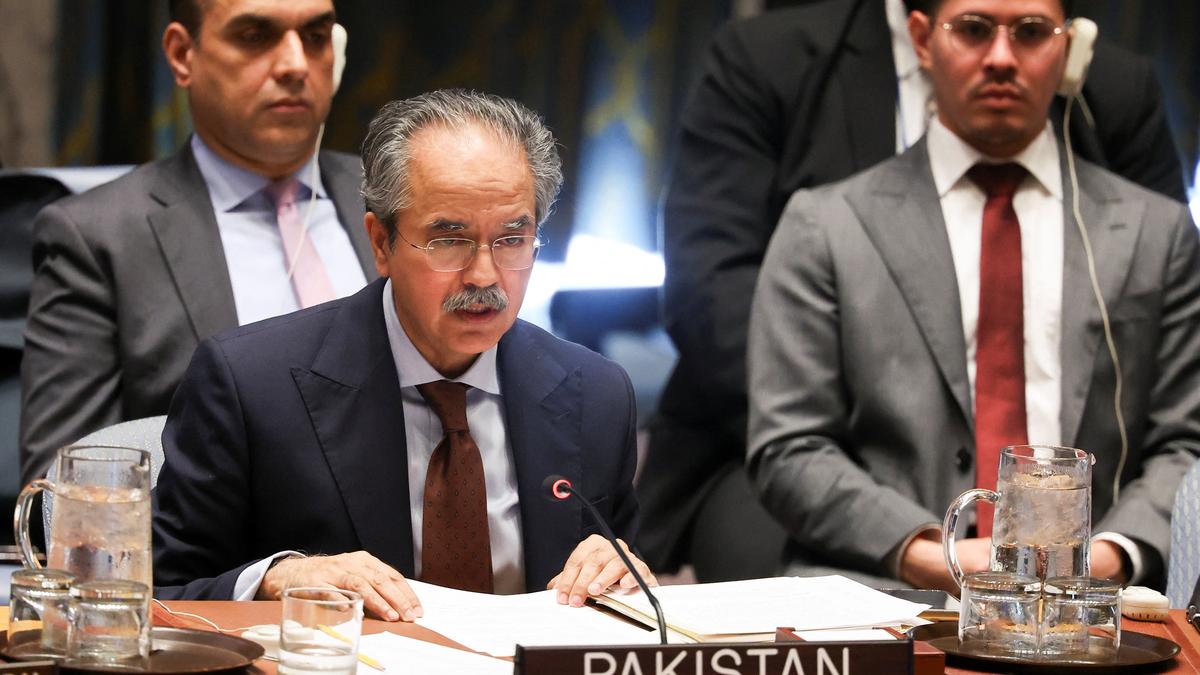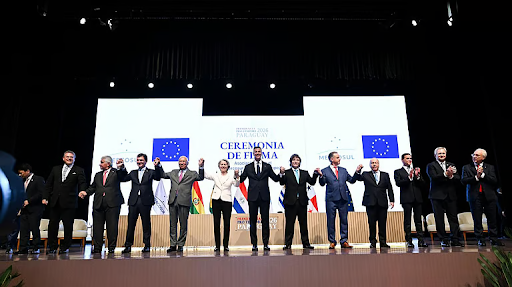



On July 1, 2025, Pakistan began its eighth rotating UN Security Council presidency under Ambassador Asim Iftikhar Ahmad, emphasizing transparency, inclusivity, and adherence to the UN Charter amid global crises. Key events include high-level debates on multilateral peace, OIC–UN cooperation, and quarterly Palestine briefing chaired by Deputy PM Ishaq Dar.

Copyright infringement not intended
Picture Courtesy: THE HINDU
Pakistan assumed the rotating presidency of the United Nations Security Council (UNSC) July 2025, as part of its two-year term as a non-permanent member of the UNSC, which began in January 2025.
It is one of the six principal organs of the United Nations (UN) and holds the ultimate authority within the UN to address threats to international peace.
Primary Responsibility => Its core mandate, enshrined in the UN Charter, is to maintain international peace and security.
Binding Decisions => Unlike resolutions passed by the UN General Assembly, decisions made by the UNSC are legally binding on all 193 UN member states. This means countries must comply with the Council's resolutions.
The UNSC comprises 15 member states, each with one vote. However, its composition is a reflection of the post-World War II global power dynamics, which is a key point of contention today.
Five Permanent Members (P5) =>These are the five major victorious powers of World War II, holding a privileged position with "veto power." This means if any one of the P5 casts a negative vote, a substantive resolution cannot pass, regardless of how many other members vote in favor. The P5 are:
Ten Non-Permanent Members => These members are elected by the UN General Assembly for two-year terms. To ensure a degree of geographical balance, their seats are allocated regionally:
Headquarters => The UNSC operates from the United Nations Headquarters in New York City.
The UN Security Council is the principal organ of the United Nations tasked with ensuring international peace and security. Its presidency is a rotating role with specific responsibilities.
World Body's Power Centre => The UNSC holds significant authority, including imposing sanctions, authorizing peacekeeping missions, and establishing international tribunals.
Rotating Presidency => The presidency of the Security Council rotates monthly among its 15 members (5 permanent and 10 non-permanent) in alphabetical order of their English names.
Role of the President => The President of the Security Council:
Pakistan's Term => Pakistan was elected as a non-permanent member for a two-year term (2025-2026) with overwhelming support, securing 182 out of 193 votes. This is Pakistan's eighth term as a non-permanent member of the Council, with previous terms including 2012-13, 2003-04, and others dating back to 1952-53.
Must Read Articles:
Pact of the Future on UNSC Reform
UN Ambassador on Security Council Reform
Source:
|
PRACTICE QUESTION Q. Critically evaluate the urgent need for comprehensive reform of the United Nations Security Council (UNSC) in the 21st century. How has the changing geopolitical landscape rendered its current structure anachronistic? 250 words |



© 2026 iasgyan. All right reserved